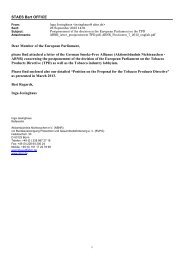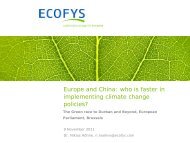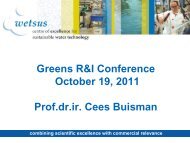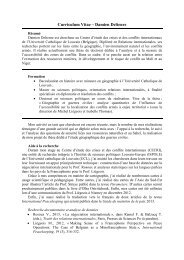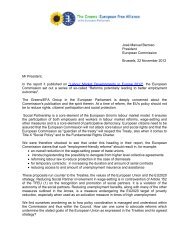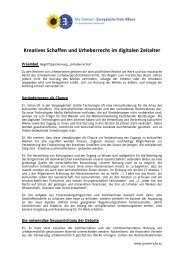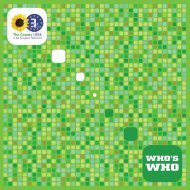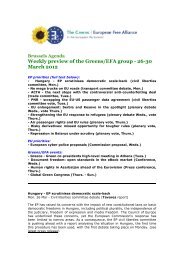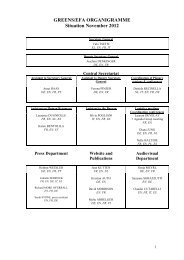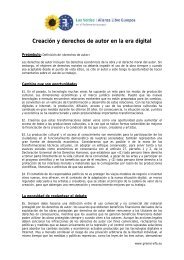Agro-Biotechnology: - The Greens | European Free Alliance
Agro-Biotechnology: - The Greens | European Free Alliance
Agro-Biotechnology: - The Greens | European Free Alliance
Create successful ePaper yourself
Turn your PDF publications into a flip-book with our unique Google optimized e-Paper software.
compared with those from healthy conventionally-bred animals.”<br />
<strong>The</strong>se conclusions were challenged by the Center for Food Safety. In their response<br />
to the EFSA opinion (cited from EFSA 2008b), the Center for Food Safety<br />
addresses some significant differences in the composition of meat and milk.<br />
<strong>The</strong>refore it called for further investigations:<br />
“<strong>The</strong> significant differences in cloned milk composition revealed by these studies<br />
raise serious concerns about whether milk from clones is safe for human<br />
consumption. Without more data, and standards for which 'normal variations'<br />
in protein and fatty acid compositions of meat and milk are safe, any conclusions<br />
regarding the safety of food products derived from clones and their<br />
progeny are premature.”<br />
and:<br />
“In our opinion, this conclusion can be extended to the more general case,<br />
considering inter alia that the assessment of compositional analysis of meat<br />
and milk from clones is based on a few studies that, in general, analyse small<br />
samples.”<br />
In the discussion about food safety one should not loose sight of the fact that<br />
the EFSA (2008a) and the FDA (2008) mention a higher incidence of infections<br />
in cloned farm animals compared to those derived from conventional breeding.<br />
Thus products derived from those animals might also have a higher burden of<br />
infectious agents. For example, investigations were carried out to examine whether<br />
endogenous retrovirus (such as bovine endogenous retroviruses, BERV)<br />
are activated by the cloning process (EFSA, 2009). However the EFSA (2008a)<br />
raises some open questions in this context:<br />
“Should evidence become available of reduced immunocompetence of clones<br />
(...), it should be investigated whether, and if so, to what extent, consumption of<br />
meat and milk derived from clones or their offspring may lead to an increased<br />
human exposure to transmissible agents. ”<br />
Many questions remain unanswered since the number of investigations is low<br />
and the data presented are not generated according to any commonly approved<br />
guidelines. It seems premature to make judgements on the particular relevance<br />
of these observed differences to food safety.<br />
Further investigations are necessary to judge the safety of these products.<br />
Since effects depend on various factors such as the animal species, the protocols<br />
used for cloning and environmental effects, it will be difficult to come up<br />
with any comprehensive and final assessment.<br />
Food Safety | Cloned farm animals - a ‚killing application‘? | 23



